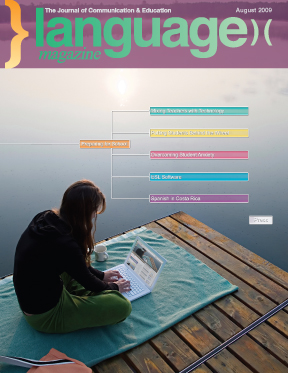Suckering the Supreme Court

- August 2009 Cover
The confirmation hearings for Supreme Court nominee Judge Sonia Sotomayor are affording the American people an invaluable insight into the ingrained prejudices that prevail in our society, as well as the procedural anomalies that assist in their continuance.
Beneath the disturbing questioning of the validity of being a “wise Latina” and Oklahoma Senator Tom Coburn’s puerile and astonishingly inappropriate impersonation of Ricky Ricardo, informing Sotomayor that she had “some ‘splainin’ to do,” there exists an underlying concern that Sotomayor’s interrogators are oblivious to their task of determining whether or not she has the requisite intelligence and experience for the role, and would rather score points by demeaning her. On top of which, there is considerable doubt about the validity of so-called expert testimony which not only undermines these confirmation hearings, but also calls into question the opinions of the Supreme Court itself.
The criticism of the Judge’s statement that her personal experience has shaped her thinking is contrary to the fundamental principle that we should learn from our experiences, but it seems to indicate that education, intellect, and expertise count for little in politics.
These hearings, like most Washington hearings, rely heavily on “expert” testimony but the choice of these experts seems to be based on proving a point rather than a desire for the truth. For example, over the last few weeks, the Center for Equal Opportunity, a small conservative think tank opposed to affirmative action and bilingual education, has been blessed with at least two opportunities to make its voice heard in the highest chambers. Linda Chavez, its chairman, a Reagan appointee, and a political analyst for Fox News, delivered testimony in opposition to Sotomayor’s appointment, claiming that the Judge “made dubious arguments in support of bilingual education and more broadly in trying to equate English language requirements as a form of national origin discrimination.” The organization was also called in to assist the Supreme Court in its decision to side with Arizona officials who said the federal government should not be supervising the state’s spending for teaching non-English-speaking students (Horne v. Flores, see p.9). Justice Alito’s majority opinion cited an amicus brief filed by the Center: “Research on [English-Language Learner] instruction indicates there is documented, academic support for the view that [structured English immersion] is significantly more effective than bilingual education.”
Of course, everyone is entitled to their opinion — Chavez served as president of U.S. English, an English-only organization — and we all know that research and statistics can be manipulated to serve several different points of view, however a Supreme Court Justice has a duty to seek out a balance of research before coming to an opinion, and, in this case, Alito has chosen to ignore the wealth of research which suggests that bilingual education is more successful than English-only.
Our representatives should be the best and the brightest, not simply people who agree with us. We have a President who graduated magna cum laude from Harvard Law School, and deserve representatives in all sectors of government who recognize the value of research, education, and true expertise.
IN THIS ISSUE:
Putting Students Behind the Wheel
Edo Forsythe recommends collaborating with students to get the most from new technologies
The Great Divide
Lance Knowles confronts the challenge of mixing teachers with technology
Tools for Teaching English
Language Magazine’s selection of technology products for the ESL classroom
Español en la Naturaleza
Kate Sommers-Dawes finds Spanish natural in Costa Rica
Busting Student Stress
Carmen Gloria Garrido Barra offers advice on how to reduce anxiety in the language classroom
Plus all the latest news in language learning technology, book reviews, and source information on language funding






